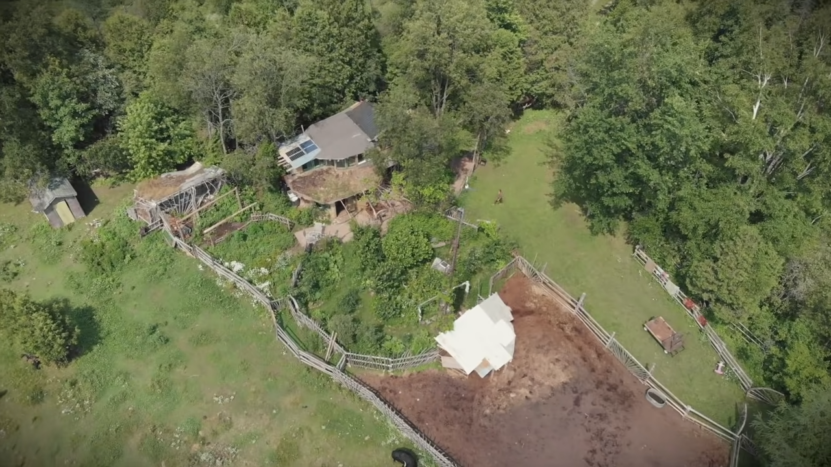We’ve updated this list with our dear readers’ ideas and suggestions!
Food Preparation Skills
1. Canning Homegrown Produce
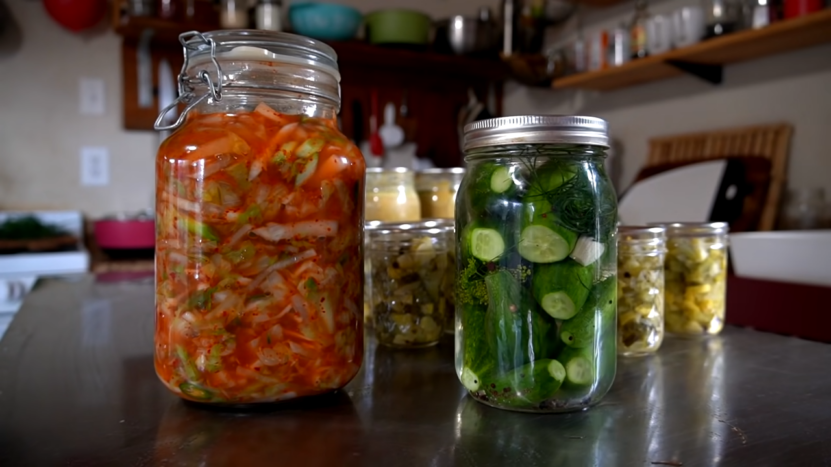
Growing your own food will furnish you with fruits and veggies more than you can handle. Preserve them naturally through canning so you can eat wholesomely all year long.
2. Prepare Wheat Without Grinder
If you don’t have a grinder or wheat mill, there are other brilliant ways to prepare wheat. You see, homesteaders are such ingenious fellows, there’s no obstacle we can’t overcome.
3. Baking Your Own Bread
Never rely again on grocery store bread with bleached flours or expensive organic loaves. Bake your own at home because, we all know, no bread tastes better than home-baked.
4. Baking Without Oven
Every homesteader should know a few tricks to cook without any power. We’ve gone a step further and made a tutorial on how to bake without the help of electricity.
5. Preparing Raw Milk
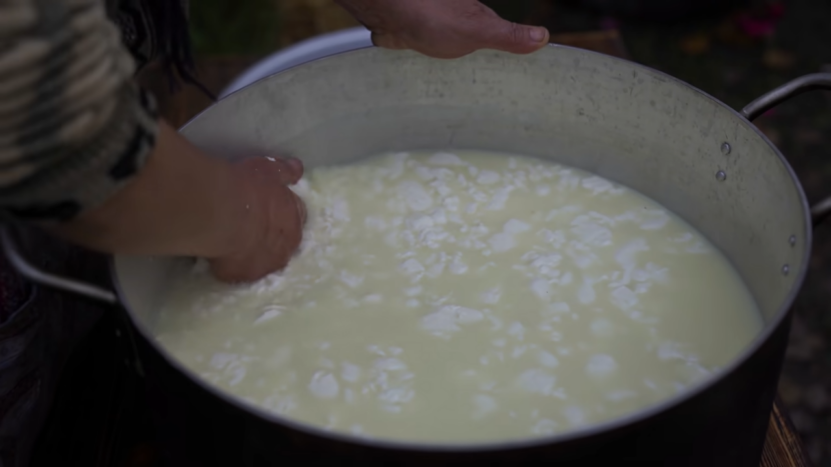
Keep milk longer and break it down into a form our bodies can find more friendly than raw milk. You can do it by learning how to pasteurize. Also, we’ve got a few more ways to prepare here.
6. Making Butter
Butter is a pantry essential. Keep a steady supply of this dairy product by making your own.
7. Making Homemade Cheese
With a steady supply of milk from your dairy livestock, why not make your own cheese? You can make your own specialty you can also earn some hard cash out of.
8. Making Yogurt
If you’ve got more milk even after making cheese, make yogurt too. Everything that comes out of hard labor is always sweetest, and in this case, creamiest!
9. Making Preserves
Make chutney, fruit roll-ups, homemade jam, palm jelly, or marmalade with crops in season. A homesteader has to preserve that extra harvest with these food preservation techniques.
10. Freezing To Preserve Food
Not all foods store either by canning or dehydrating. Freezing food is another food preservation technique. A certified homesteader has a few tricks up their sleeves.
11. Cooking Food From Scratch
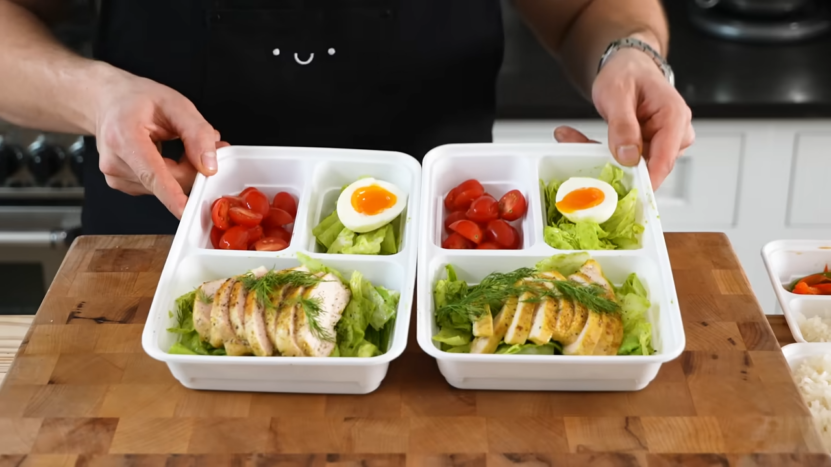
Some fruits and veggies can spoil fast, so before they get to the last stage before the compost, deal with ’em fast. Take these delicious banana recipes and don’t waste those nutritious fruits.
12. Making Pancakes From Scratch
Every homesteader knows breakfast is the most important meal of the day. Boxed mix isn’t a good way to treat breakfast royalty, so always prepare pancakes the good old-fashioned way.
13. Making Meat Stock From Scratch
Organic meat broth is the secret to some of the most delicious recipes. Don’t waste the bones from the livestock you just had but make savory stock soup with those.
14. Planning Meals According To What’s In-Season
You can easily have too much of fruits and veggies in season. Plan your meals and add variety in preparing your dishes with your produce.
15. Cooking With Cast Iron Skillet
One signature of old-school homesteaders is cooking with a cast-iron skillet. Don’t underestimate this trusty cooking tool. There are a lot of savory recipes you can cook with it.
16. Freezing Herbs
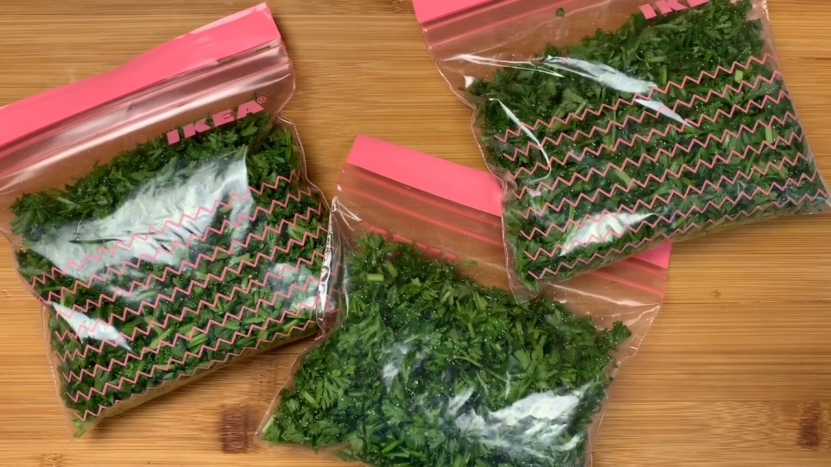
Some of the best cooks out there are also homesteaders. Incorporating herbs in every recipe like herbs frozen with oil or soup stock is one secret.
17. Stocking Dried Herbs And Spices
You’ll see some of the loveliest and liveliest spice pantries around are of homesteaders. Jars of colorful herbs, spices, and condiments line up my pantry–it’s like a party.
18. Make Homemade Starter Dough
If you bake your own bread with your homemade organic flour, why not take the extra step of making and maintaining your own starter dough? It’s really simple and easy, you know!
19. Make Your Own Smokehouse
Whether you butcher your own livestock or hunt wild game you will need a way to preserve the meat properly. In that case, a homemade smokehouse should be in order.
20. Vacuum Sealing
Your food will easily go bad if you don’t seal it properly. Learn the art of vacuum sealing so you don’t waste any. The more food preservation techniques you have up your sleeve, the better for homestead survival.
21. Brewing Drinks
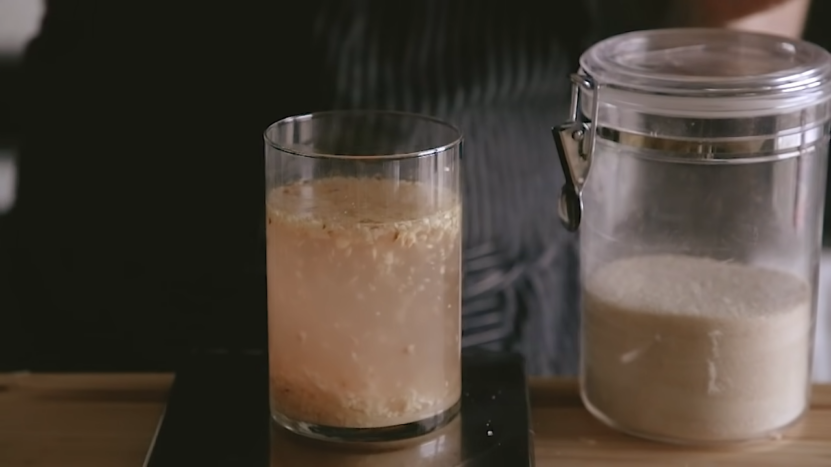
Making your own beer is rewarding and delicious. It can be one of the many perks of a self-sufficient lifestyle. Also, the process is simple and becomes easier once you get the hang of it.
22. Tapping Maple Trees
Tapping maple trees in late winter is a great pastime, and the results are divine! Also, I smell some sweet, cold, hard cash. This is one of the productive skills to learn in off-grid living.
23. Make Your Own Homemade Vinegar
Apple cider vinegar is a simple ingredient, yet the benefits and uses around the home are incredible. You can make apple cider vinegar from apple parts you would otherwise dispose of.
24. Canning Tomatoes
When tomatoes fruit, you know they fruit good more than you can handle. Luckily, canned tomatoes are a staple at home, I keep a steady supply of homemade ones.
25. Dehydrating Fruits And Veggies
If you love raisins, you can make them on your own. This food preservation technique will make healthy snacks. Dehydrate a variety of fruits and veggies for your own year-round supply.
Homemaking Skills
26. Make Homemade Cleaning Products
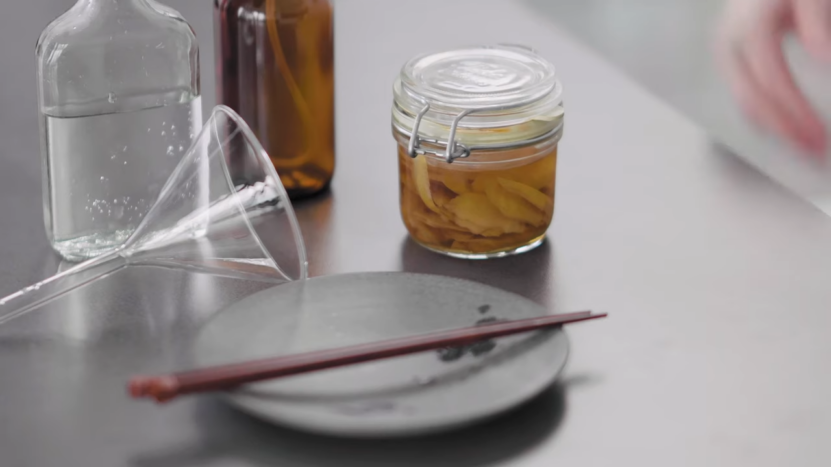
Cut the chemicals and opt for natural ingredients in your cleaning supplies. You’ll spend a little time to save lots in your budget.
27. Homemade Skin Care Products
Everyday household stuff makes safe and effective skin care products. A homesteader can also be fabulous–safely fabulous–on a budget!
28. Make Homemade Personal Care Products
Chemical beauty and personal care products pose health concerns. Whether they’re founded or not, better safe than sorry and use organic products instead.
29. Making Laundry Detergent
Even laundry soaps can also be made in a modern homestead. Make your own chemical-free detergent in either liquid or powder form.
30. Making Homemade Soap
Making your own homemade bath soap is fun, boosting your creativity. You can explore different shapes and different ingredients, and the result will be amazing.
31. Basic Hand Sewing
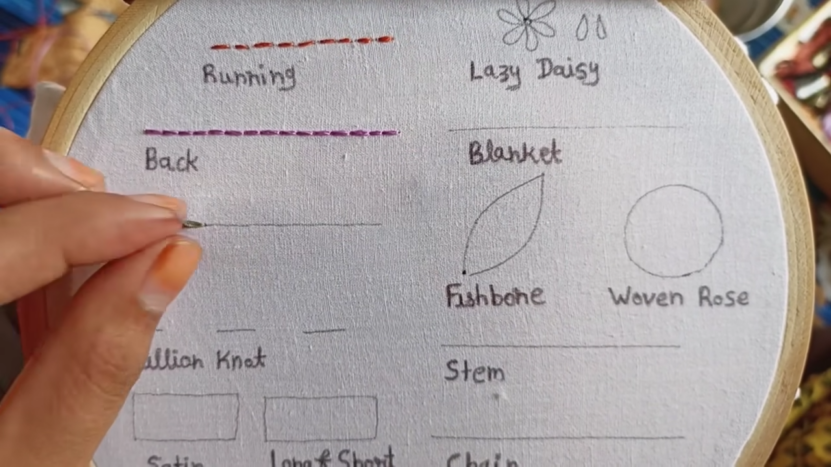
Save your husband’s favorite pair of jeans or adjust your children’s hemlines. Basic sewing skills definitely saved me a lot from buying new items of clothing.
32. Needleworks
This skill will provide a relaxing hobby the whole family can benefit from. I, myself, love nothing better to do on a down day than to embroider, knit, and cross stitch.
33. Use Sewing Machine
For sewing new clothes or larger fabric, you’ll need more than just your hands. Learn to operate the sewing machine for more fabric projects around the home.
34. Hand-Washing Laundry
Hand-washing laundry is one of the skills lost to time. It is a lost art with many benefits. Don’t let it die down, but experience softer hands, better fabric care, and lesser utility cost with hand washing.
35. Line-Drying Laundry
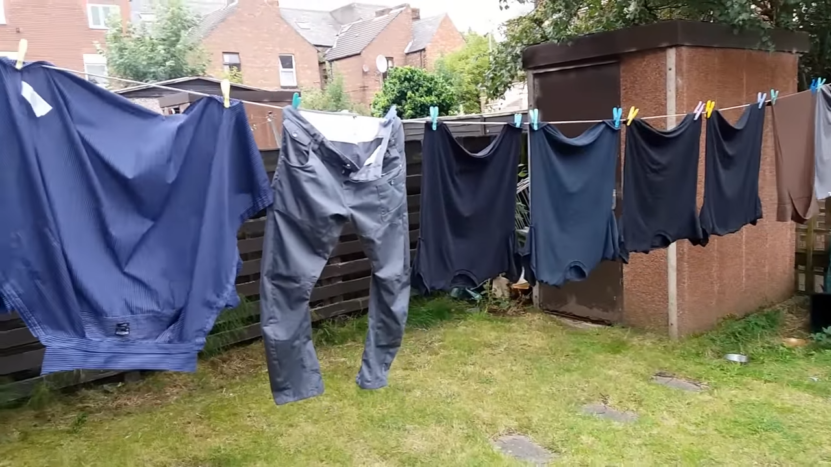
Give your clothes a breath of fresh air and dry them outdoors instead of opting for the costly electric dryer option. You have fresher clothes and lower power bills.
Gardening Skills
36. Growing Own Food
The ultimate homesteader has this homesteading skill at the top of the list. After all, this is where the idea of self-sufficiency comes from.
37. Hydroponic Gardening
A homesteader knows she has to work with her environment to thrive. If the soil is unfavorable, then opt for hydroponics gardening.
38. Straw Bale Gardening
Straw bale gardening is a game changer for those with poor soil. Exploring different methods of gardening is one of the homesteading skills you’ll need to thrive.
39. Make Your Own Greenhouse
A homestead should never be without a greenhouse or at least a high tunnel. Grow fruits and veggies all year long in a homemade greenhouse.
40. Aquaponic Gardening
Incorporating gardening with natural ecosystem is also a homesteading must-know. Understanding aquaponics gives you a fine gardening alternative.
41. Growing Herbs
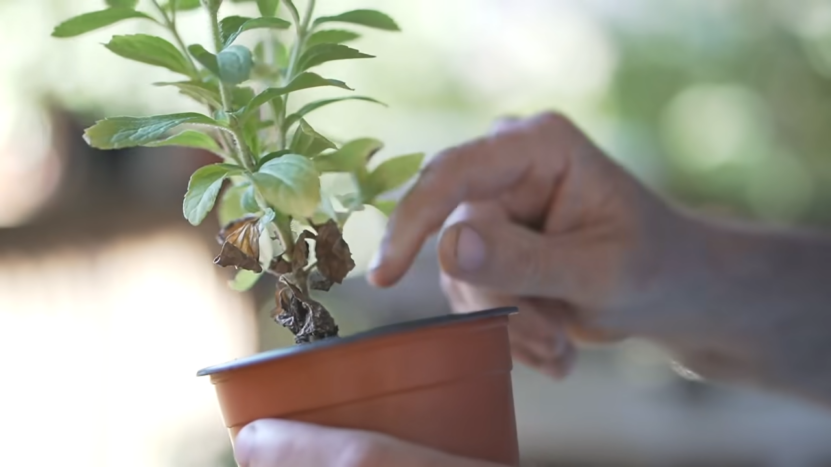
You’ll have more uses for herbs than any other plant in your vegetable garden. Whether culinary, healing, gardening and even cleaning, herbs are important and must-grow in your garden.
42. Determining Hardiness Zones
Planting according to hardiness zone ensures gardening success. Like the back of the hand, a gardening homesteader should be familiar with it.
Get Your FREE Survival Seeds Playing Cards!
Ideal for homesteaders who like to live sustainably and purposefully. Great way to spend quality time playing cards, and learn how to grow all the most important crops for survival. Get them FOR FREE Here!
43. Propagating Plant Cuttings
Besides using seeds or bulbs, growing more plants from cuttings is a tricky gardening trick. If you get the hang of it, then you’re a certified homesteading green thumb.
44. Planting Trees
Trees are invaluable to homesteaders. Planting trees are one of the important homesteading skills to learn. You will have lots of uses for them around the homestead.
45. Dealing With Weeds
Weeds can be a menace, but there are ways to deal with these pesky greeneries. A homesteading gardener also finds ways to find uses for weeds.
46. Raising Tomatoes
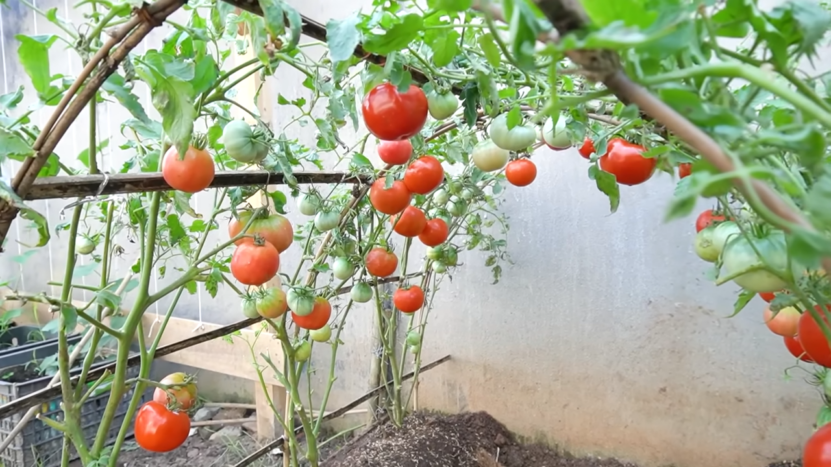
“There’s money in tomatoes”, and every true blue homesteader knows that. Growing tomatoes in your vegetable garden are easy and the rewards are big.
47. Dealing With Garden Pests
Using organic means to fight off pesky pests truly is a homestead gardening skill. Companion planting and organic pesticides are two of the most effective methods.
48. Saving Seeds
Create a never-ending supply of seeds not just for gardening. Seeds are a good food source too! Saving seeds is also one of the survival skills to learn.
49. Soil Preparation
The soil is everything in gardening and growing a vegetable garden. It’s a homesteader’s skill to amend and work out the soil for organic gardening success.
50. DIY Compost Bin
Correctly storing your compost will save your backyard from smelling like a dumpster. You can make DIY compost bins from practically free supplies in pallets and salvaged wood.
51. Composting
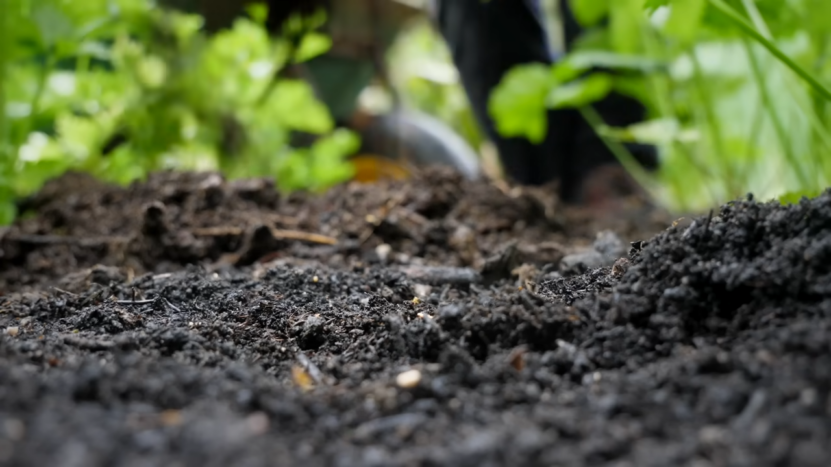
Don’t throw out all your recyclable odds and ends. Composting is important when organic gardening. A true blue homesteader knows composting is essential in gardening.
52. Worm Composting
Every gardening homesteader’s composting buddy is the earthworm. We all know their important role in a healthy soil and a healthy vegetable garden.
53. Learn Permaculture
Permaculture is but a fancy word for organic gardening. Every homesteader knows the positive environmental implications of considering nature in gardening.
54. Harvesting
If you think harvesting is as easy as picking, there’s more to it than that. Timing is everything, and a homesteader knows the tricks.
55. Build A Geodomestic Dome
You can use this structure for extra storage, a chicken coop or as a greenhouse. Either way, these domes are useful additions to your homesteads.
Animal And Livestock Raising Skills
56. Build Fencing
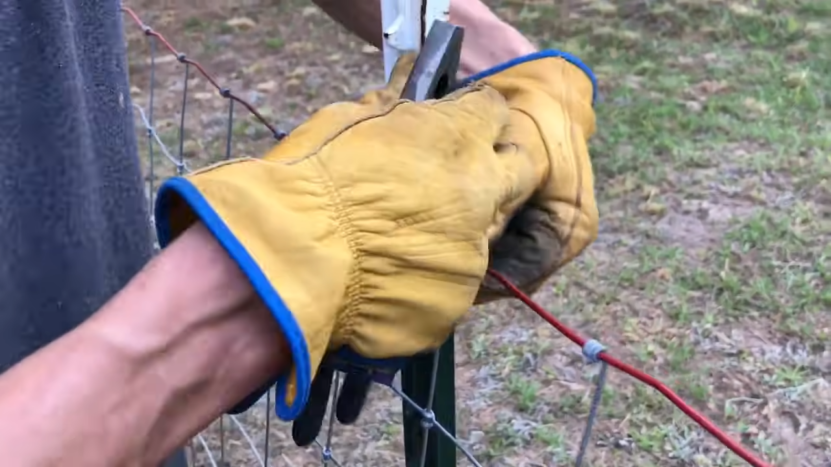
Keep your livestock in and predators out by learning to build and repair a fence. You’ll also need a fence around your garden so equip yourself with this homesteading skill.
57. Bee-Keeping
Homesteading isn’t complete when you’re not keeping bees. You learn to value bees not just for honey but for their valuable role in nature.
58. Keeping A Barn
A barn will be very important in your homestead. Keeping a home for your animals is as important as keeping your own homestead.
59. Horseback Riding
You never know when your automobiles will be rendered useless. Add horseback riding to your list of homesteading skills before that event ever occurs.
60. Training Farm Animals
Farm animals are not only great companions but can also help around the homestead. Train them properly and get a valuable workforce.
61. Make Your Own Dog Food
Treat your canine best friends to homemade and organic feeds. They’re family, after all, and deserve only the best.
62. Raising Dairy Livestock
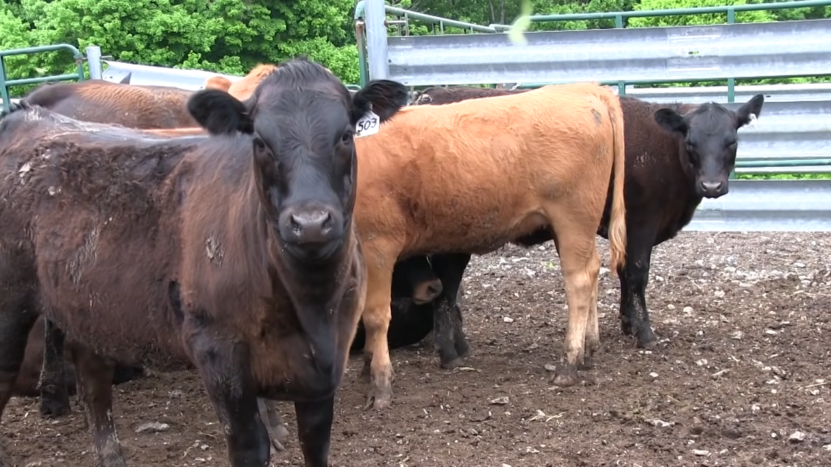
I need not say more. Add raising cows and goats in your list of homesteading skills because…milk!
63. Know How To Cut, Bale, And Stack Hay
Keeping your hay organized will cut chaos out of your homestead. And, it’s one of the signatures of a homestead.
64. Milking Dairy Livestock
Add to your homesteading skills the ability to milk goats and cows. It’s infinitely important if you plan on making your own dairy products.
65. Know Basics Of Animal Breeding
This will save you lots of money and could even earn you some if you decide to sell some of the animals you breed. It’s one of the cash-generating homesteading skills to learn.
66. Raising Chickens
Skip the hassle of feeding your chickens by hand every day by setting up this easy chicken brooder. If you’ve got chickens more than you can handle, it’s high time you keep one.
67. Make Your Own Chicken Feed
Find a recipe that works for your chickens. You may even be able to use ingredients you already have on hand!
68. Build Your Own Chicken Coop
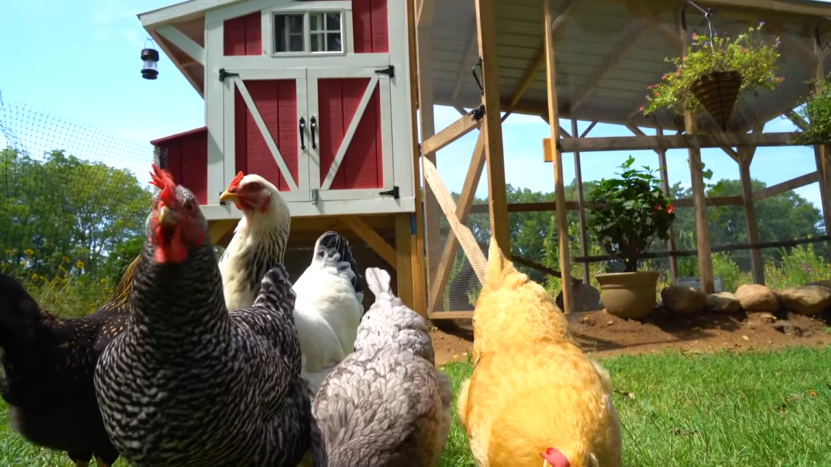
Build your egg-layers a home. Make sure to keep your chicken coop comfy as can be by using herbs–a trick valued by homesteaders.
69. Hatching And Incubating
Hatching eggs can be a tricky business. Adding this know-how to your homesteading skills will give you more than just a steady supply of eggs.
70. Preparing Chicken Meat
While I let my husband do the hard part, I can do the plucking. But it’s one of the skills to learn in self-sufficient living. It’s a handy homesteading skill if you want to survive.
71. Know Your Livestock Birth 101
This is one important homesteading skills to learn in self-sufficient living. You can’t tell when your farm animals will give birth and a vet can’t always be available 24/7.
72. Making Homemade Farm Feed
“You are what you eat”, just as how your livestock are. Give them organic feeds so you know what goes into them.
73. Newborn Livestock Care
Even in a healthy birth, you will still need to be near to take care of your animals after they are born. Mostly be there to keep the mother calm and hydrated.
74. Learn Basic Livestock Health Care
Again, vets can’t be around 24/7, so it’s an important homesteading skill to know basic animal care. A self-sufficient lifestyle will make you a jack of all trades, which is helpful in homesteading.
75. Raising Goats
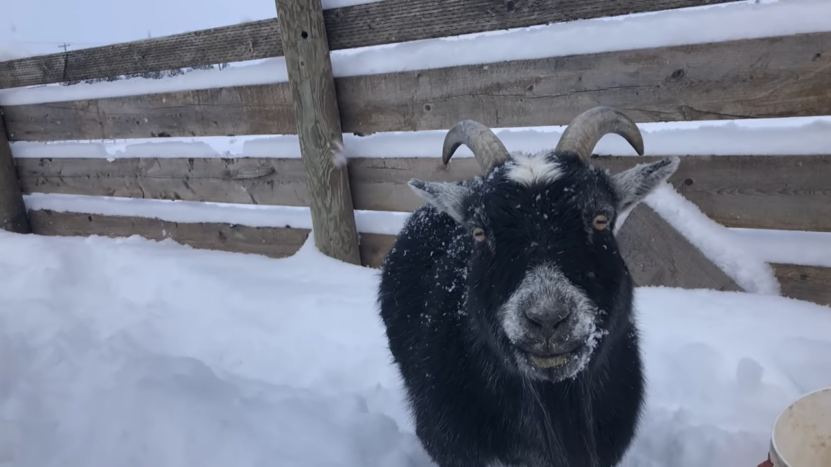
Goats are some of the easiest livestock animals to care for. They are low-maintenance with high return. Raising goats is best for homesteading for beginners.
76. Deal With Fowl Predators
Chickens are a delicacy for predators like foxes, snakes, and coyotes. Putting up a fence and other deterrents is one of the important homesteading skills to learn.
77. Cutting And Slicing Meat
The art of butchery is different for every animal. Different cuts should be cooked different ways so you should know which cuts work for every animal you are butchering before you start making cuts.
78. Restraining Livestock
We all know sheep can be stubborn and so are some of your other livestock. Bending them to your will is also an important homesteading skill.
79. Tanning
If you’re hunting game or consume livestock, the skin is an important product around the homestead. Tanning hide is one of the productive homesteading skills to learn.
80. Growing Fodder
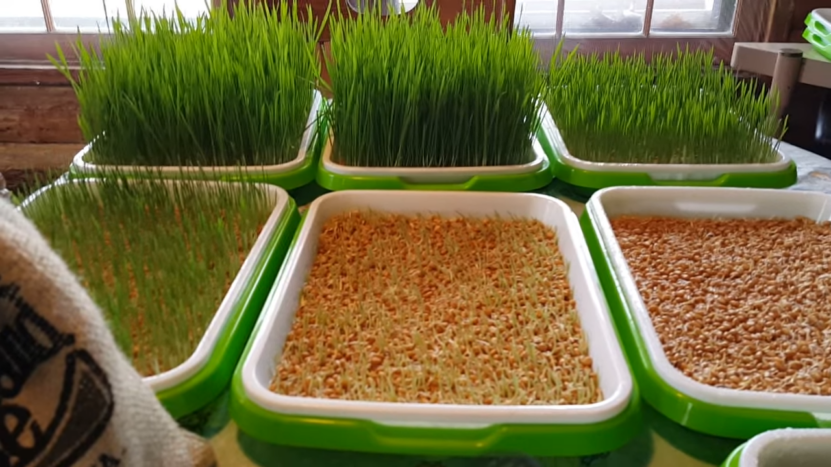
Having your own fodder system will save you money, and ensure freshness with maximum nutrients. Harness this homesteading skill for your livestock’s sake.
81. Understanding Holistic Management
Homesteaders should consider their approach to agriculture and farming, and how it affects nature as a whole. Considering your environment in raising livestock is a valuable homesteading skill.
82. Trapping Flies
Sometimes you’ll be pestered and frustrated by flies in your homestead. Dealing with these pests organically and effectively is a must-have homesteading skill.
83. Trapping Mosquitoes
Mosquito repellent will not be enough at times. Learn how to trap these pesky insects with traps made from all natural materials.
Survival Skills
84. Foraging For Medicinal Plants
Preparation for emergencies is key, but in the event of the inevitable, you may have to forage for plants with healing properties. A homesteader will need to be familiar with this valuable nature item.
85. Identifying Mushrooms
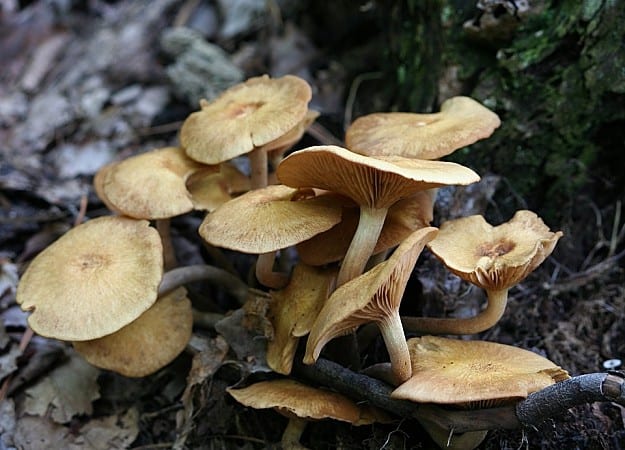
Mushrooms have both culinary and medicinal values. I must warn you though, there are more poisonous mushrooms than edible ones, so better master mushroom identification.
86. Identifying Native Plants
It’s an important homesteading and survival skill to identify different plants from afar and up close.
87. Identify Edible Flowers
Turns out some flowers are edible and delicious, too! So, mix edible gardening with your homestead landscaping.
88. Foraging For Wild Edibles
Foraging for wild edibles is both challenging and exciting, but productive. Add it to your list of homesteading and survival skills!
89. Identifying Undesirable Plants
Both invasive and poisonous plants whether in the field or water should be avoided. Knowing these undesirable plants will save you lots of trouble.
90. Make Your Own Fire Starter
Trivia: Many people in Ireland still make their own natural fire starters today. This saves time when needing instant warmth on those blistering cold winter days.
91. Start Fire Without Matches
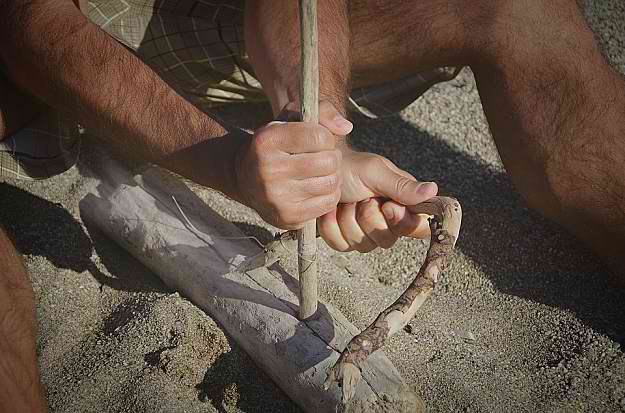
You don’t know when you’ll be confronted with the need to start a fire without matches. Don’t wait for that tragedy and start practicing the homesteading skill now.
92. Making Waterproof Matches
Don’t find yourself removed from your home and in need of a heat source. Be prepared to start a fire even in inclement weather with homemade waterproof matches.
93. Proper Handling Of Firearms
Predators and threats on the homestead are inevitable. Don’t let lack of gun knowledge be your demise and educate yourself ASAP.
94. Proper Storage Of Firearms
Part of knowing how to use a gun is learning to store it safely away from children and possible attackers. You’ll sleep more soundly at night knowing it’s in a safe place.
95. Tying Knots
You’ll soon find out tying knots isn’t only useful for camping and sailing. Everyday chores around the homestead may require skills in tying knots.
96. Learn Hunting Laws, Rules, And Regulations
It is only legal to hunt certain animals during specific seasons. The consequences for hunting game outside of its respective season can end in costly fines or the restriction/loss of your hunting license.
97. Hunting Game
Provide more protein for your family and keep your livestock’s predators at bay. Self-sufficient living needs you to learn to hunt games. Make sure you have the proper licenses to hunt game.
98. Butchering
Butchering time is never a happy time on the farm, but it’s necessary to know how to humanely put your livestock down. You must also know how to gut and clean them so the meat does not spoil.
99. Fishing
Make sure you check any rules or legislation regarding catching different breeds of fish as they can be seasonal as well. You’ll need some of the healthy protein in fish so practice your fishing skills.
100. Sharpen Cutting Tools
Dull tools in the middle of an important project can be frustrating. Add sharpening cuttings tools to your list of homesteading skills.
101. Cleaning And Cooking Fish
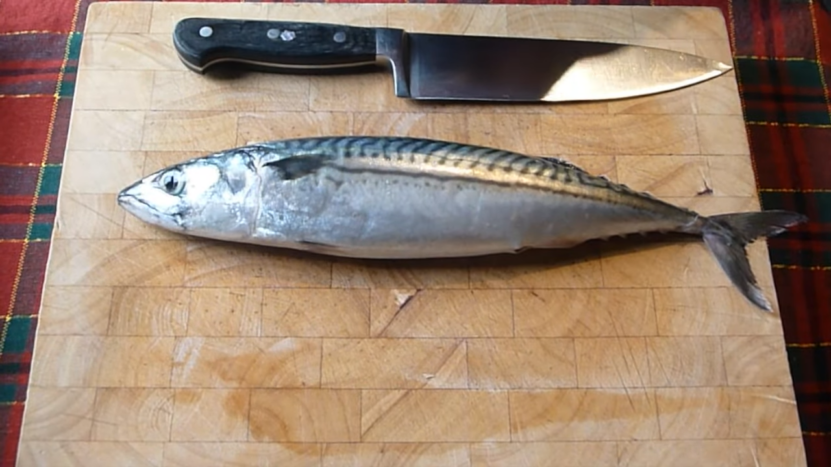
I’ve seen men and women alike wrestle with fish while they are cleaning them. If you plan to be a homesteader, know your way with fish.
102. Know First Aid And CPR
In case there is an accident on the homestead, you should always be prepared (especially if you live out in the boonies like I do). Knowing first aid and CPR is truly one of the essential survival skills.
103. Reading Maps And Using Compass
Maps and compass aren’t just for when you’re lost. Reading maps and using compass has more uses in the homestead both in gardening and building structures.
104. Making Booby Traps
Don’t think making booby traps is something you leave up to kids home alone for Christmas. A self-sufficient homesteader should know how, too!
105. Make Your Own Still Water
Purify your water or make some moonshine in your own distiller. Distilling drinks could be a very useful homesteading skill too.
106. Purifying Water
Use these various methods to make sure you always have access to clean water. These are simple methods but a certified lifesaver.
107. Learn Weather Forecasting
Forecasting can be possible with subtle clues from Mother Nature. Predict when a storm is coming, how strong it is likely to be, and when it is likely to occur.
108. Putting Up A Survival Kit
In the event of an emergency, having a ready bug out kit, or at least knowing what to put up could save you. Food and first aid kit are important but there are other items you will need, too.
109. Preparing For Wildfires
Be sure that you are taking every precaution against wildfire spreading across your homestead. We all know a wildfire can be devastating so it’s a skill to recognize and prepare for it.
110. Preparing For Tornadoes

Every homestead should have a storm shelter in the event this natural disaster blows through your neck of the woods. Here are some tornado survival tips for you.
111. Preparing For Blizzards
Make sure your family and your livestock are protected against freezing temperatures. Preparing your homestead for blizzards is an important homesteading skill.
112. Staying Warm In A Sleep Bag
You never know when nature can be extra freezing or when you’ll be stuck outdoors. With a sleeping bag, you can keep yourself warm with these useful tricks.
Other Self-Sufficient Living Skills
113. Knowing Uses For Beeswax
Honey isn’t the only gift the wonderful bees gave us. Beeswax has lots of benefits and is valued nutritionally, you’ll love raising bees in your self-sufficient homestead.
114. Making Homemade Candles
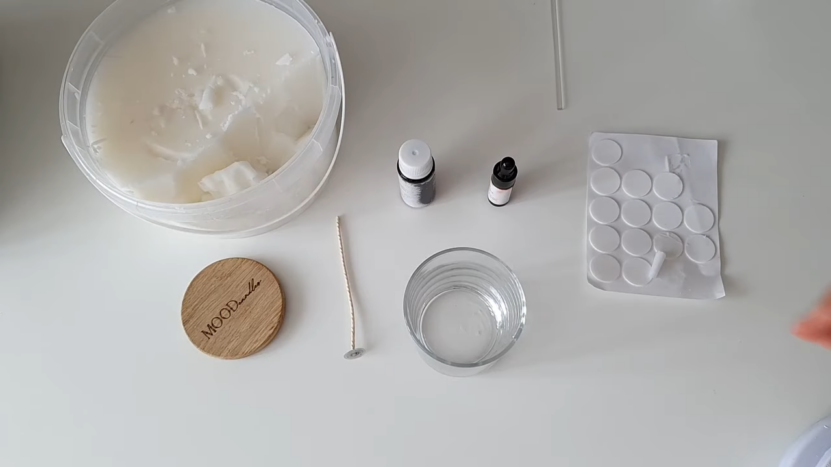
Aside from lighting up my home, I love homemade candles for sentimental reasons. Besides, I’m into hygge, which gives emphasis to using candles–you should try it!
115. Repurpose And Recycle
Frugality and ingenuity go hand in hand in every homesteader. There are ways to find different uses for every little thing around the homestead.
116. Reusing Citrus Peels
Orange peels can be utilized on and around the homestead in various effective ways. So, don’t throw your orange peelings yet but take these frugal living tips.
117. Using Charcoal
Charcoal has wonderful uses other than the compost. Use activated charcoal though when using for personal purposes.
118. Drying Herbs
Drying herbs is an ancient practice–one of the skills lost to time. But it’s making quite a comeback. Preserve your herbs for teas, spices, or to hang in your home as an air freshener.
119. Extracting Herb Essence
Herbs have long been used as natural medicines. Learn to extract essential oils and heal yourself and your loved ones naturally before you head to the pharmacy.
120. Making Herbal Poultice
Rediscovering ancient means of natural healing included the use of herbal poultice. Learn to practice it your own here.
121. Make Organic Mosquito Repellent
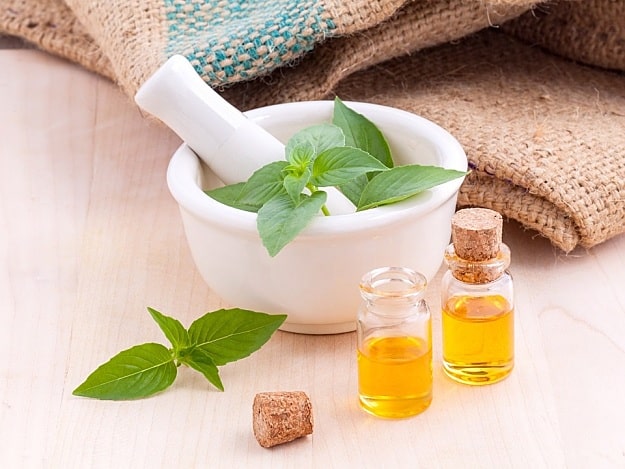
We now know chemical mosquito repellent is harmful. Make a safe organic mosquito repellent you can apply as often as you want without the side effects.
122. Making Essential Oil
Essential oils are important for a lot of homemade products like soap, deodorizer, and treatments. Making essential oils is one of the important homesteading skills.
123. Making Homemade Remedies
Going old school, including making simple home remedies, is one of the homesteading skills must-learn. Tap easily accessible resources right in your yard.
124. Basic Carpentry
Simple repairs and maintenance around the homestead need not be left to carpenters for hire. Save yourself the expense and do it yourself with your knowledge of basic carpentry.
125. Operate Heavy Machinery
A homesteader is definitely strong, but we’re no Superman. You’ll need to learn to operate heavy machinery and you’ll accomplish next to impossible things around the homestead.
126. Basic Automechanic Skills
Life on the homestead means no guarantee someone is nearby at any given time. Learn this self-reliant skill so you don’t lose a whole day of work due to a busted tire.
127. Winter Plumbing
Isn’t a faucet creaking and groaning in winter frustrating? Learn how to prevent freezing pipes and how to thaw them in case they freeze up.
128. Make Your Own Oil Lamp
You know how animal fats were used back in the olden days. They make great fuel for your homemade lamp. Make sure not to only have plan B or C when it comes to emergency lighting.
129. Cutting Trees Properly
Clearing an area or using some trees in your land will require you knowledge in cutting trees properly. If you think it’s as easy as striking the wood with an ax or running a chainsaw, certain tricks must apply for safety.
130. Harvesting, Splitting, And Stacking Firewood
Not all woods are good for fire, especially in an indoor fireplace or furnace. Learn which woods grow in your area and how to split it so it will be easy to stack and store.
131. Using Firewood
I’ve never entertained the idea of abandoning firewood in my fireplace or oven. There’s a certain old world charm to it and I love the smell of certain wood in my fireplace.
132. Using Basic Tools
Knowing your tools is another key element in homesteading. Not everyone can pride themselves on knowing their way with simple tools, so homesteader, give yourself a tap on the back.
133. Make Your Own Solar Lamp
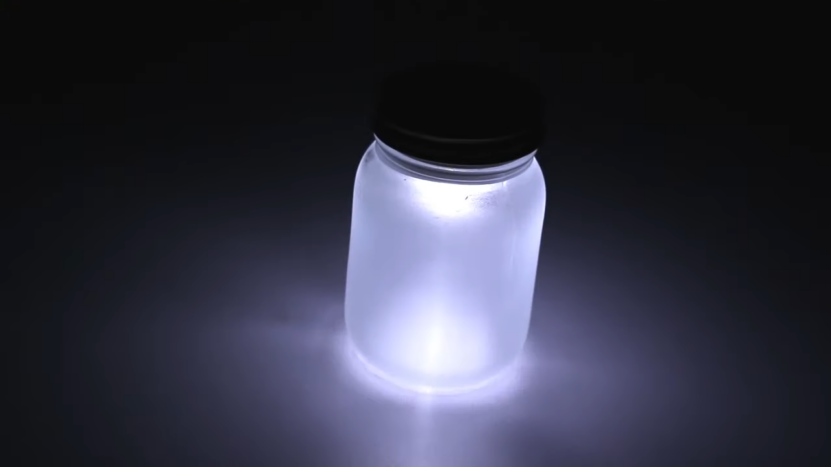
Use sustainable energy source even in your homemade solar lamp. This will ensure you different lighting alternatives come hell or high water.
134. Build DIY Wind Turbine
Avoid hefty expense on trivial homesteading projects like emptying a pond with a wind-powered water pump. But, you can use a windmill for more than just this kind of projects.
135. Build Outdoor Rocket Stove
Learn to make a makeshift outdoor stove for warmth or for cooking outdoors. This is one of the handiest survival skills.
136. Build DIY Solar Panel
Harnessing sustainable energy in the sun is a valuable homesteading skill both beneficial finance-wise and to the environment in the long run. It’s an earth-friendly homesteading skill.
137. Recognizing Need
We, homesteaders, are like-minded people. We take pride in our self-sufficiency and are not always first to ask for help. Recognizing when to offer help is a valuable skill indeed.
138. Keeping Warm In Winter
You’ll love these winter hacks for staying warm. Homesteaders are excellent at utilizing all of their resources and thinking outside the box.
139. Tapping Gray Water
Recycling the water you use around your homestead will do wonders for the environment. Harvesting rainwater is also a homesteading skill to value.
140. Learn To Prospect Gold
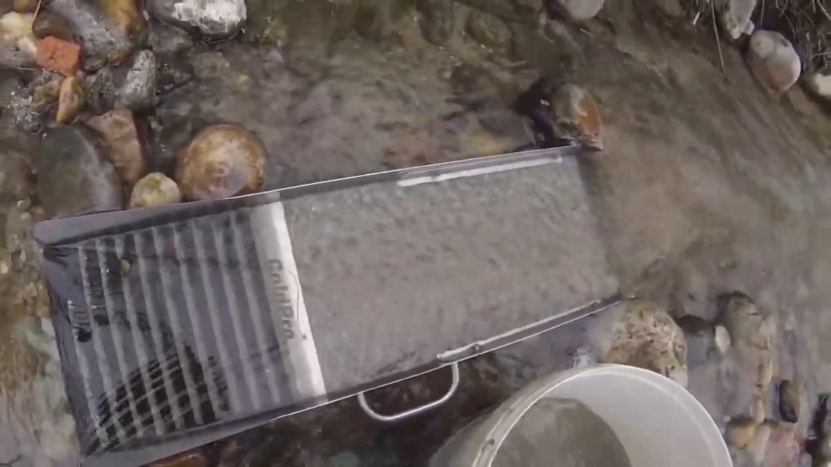
Learn to make some extra cha-ching by mining the nearest river. Who knows, your gold prospect is only right under your nose?
141. Living Within Your Means
Most people who went homestead living came to realize they’ve been wasteful. Frugal living is a skill every homesteader should learn.
142. Bartering
This may seem like a game for cheapskate’s, but it is handy. Make sure you’re not getting ripped off when you know what something is worth. Learn the art of bartering.
143. Know What You Can Live Without
Knowing what you can live without is only the start of frugal living. Your homesteading skills in this part will be defined if you give up on these items you know you can really live without.
144. Connecting
Social skills are also a valuable homesteading skill. Homesteading can sometimes render you isolated. Going out of your way to meet fellow homesteader and like-minded people will prove to be valuable.
145. Knowing Your Limits
Don’t be so hard on yourself when things don’t always go your way in homesteading. Knowing your limitations is one of the homesteading skills to master and muster.

